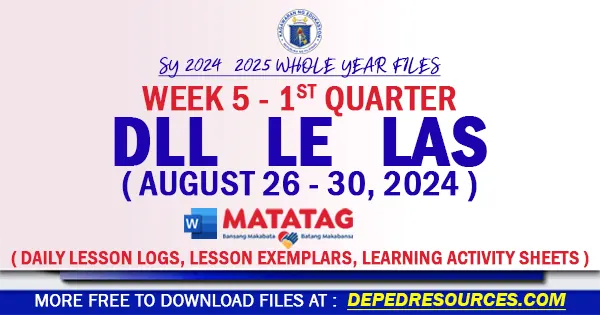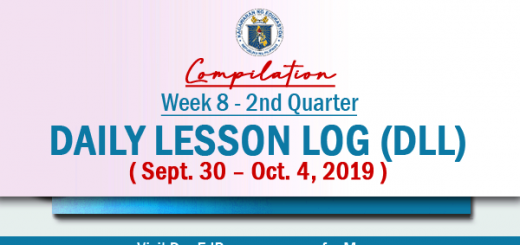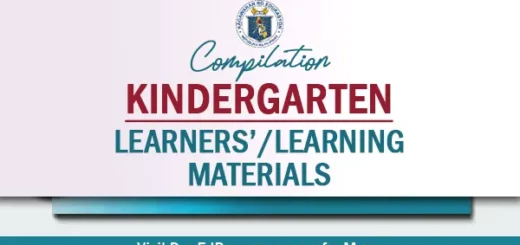Quarter 1 Week 5 Matatag Daily Lesson Logs | August 26 – 30, 2024 DLLs
Good day and welcome! Here’s an update on our Quarter 1 Week 5 Matatag Daily Lesson Logs | August 26 – 30, 2024 DLLs. Our goal is to keep updating and publishing ready-made weekly K–12 Daily Lesson Logs.
Effective Lesson Planning
When planning daily lessons, organizing content to align with learning objectives is crucial. Teachers can choose a global, disciplinary or multidisciplinary approach to content arrangement. This decision should consider the coherence and continuity of the teaching process, students’ psychological traits and overall effectiveness.
In the early years of primary education, lessons should follow a structured plan. As students advance to the second and third periods of primary education, an interdisciplinary approach becomes essential. In secondary education, the curriculum should not be seen as a collection of unrelated subjects but as interconnected ideas. An interdisciplinary strategy is practical at this stage as students are expected to understand various aspects of school and social realities through different courses. Therefore, organizing content by discipline is most effective.
Sequencing Content in Lesson Planning
Sequencing content involves organizing material in a logical order guided by theories of conceptualization, interpretation and psychodidactics. Different standards can be applied for content sequencing:
- Evolutionary Theory-Based Sequencing: This approach is grounded in human development theories such as Piaget’s stages of cognitive development which include the sensorimotor, preoperational, concrete operations and formal operations stages. These stages help identify when students are intellectually ready to learn certain concepts and guide the sequence of lessons. Recent research also highlights the importance of prior knowledge in determining the logical sequence of school activities.
- Task Analysis-Based Sequencing: This method involves breaking down learning objectives into smaller, manageable tasks. Initially rooted in behaviorism, this approach prioritizes learning by starting with simpler skills and gradually moving to more complex ones. The cognitive paradigm also influences this process, allowing for diverse task analysis patterns.
- Content Analysis-Based Sequencing: This strategy creates instructional sequences based on the logical or psychological structure of the material. It emphasizes organizing content around central ideas or prior assumptions students have about the topics.

 Learn about the information we collect and how it's used.
Learn about the information we collect and how it's used. Discover how we protect your data.
Discover how we protect your data. Understand your rights and choices regarding your personal information.
Understand your rights and choices regarding your personal information.














